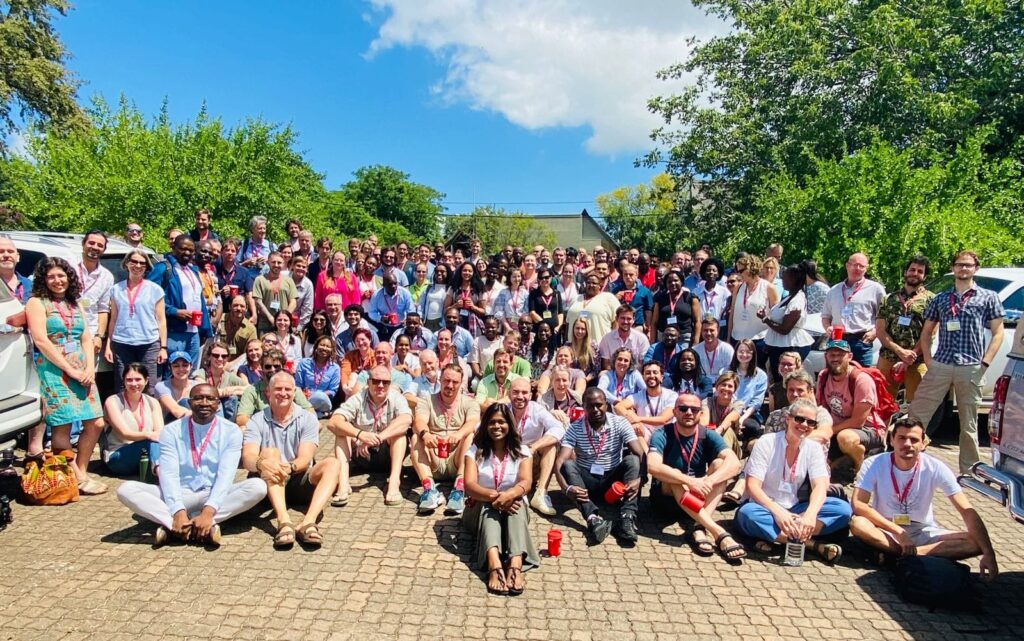Scientists from around the world spend several days in Kruger National Park, sharing ideas and working to support global conservation efforts.
Mpumalanga, South Africa (February 28, 2024) – Kruger National Park (KNP) will once again welcome the world's scientists, researchers and protected area managers to the 21st Annual Savanna Science Network Conference, to be held in Skukuza from 3 to 7 March 2024.
“The park will have 208 delegates representing 80 different scientific and conservation organizations from 25 countries. 99 of the delegates will be from South Africa and will be represented by national and provincial government departments; Representing 30 institutions including academic institutions, research institutes, NGOs, and conservation organizations. For those who wish to attend online, the meeting will also be streamed live on YouTube https://www.youtube.com/@savannasciencelivestream335 Kathy Grieber, SANParks Acting General Manager, Savannah Research Unit, said:
The four days of presentations and posters will cover many current issues in the ecological and social sciences. There are a variety of sessions covering different topics, including:
- classic ecological topics such as the study of ecological patterns (e.g. patterns of animal space use, large-scale biodiversity patterns);
- Understanding ecological processes (erosion, predation, plant recruitment, herbivory, fire, disease, decay, etc.)
This year's program includes presentations on cultural heritage, tourism, human-wildlife conflict and coexistence, wildlife economics and wildlife crime. Presentations on cultural heritage, tourism, human-wildlife conflict and coexistence. This reflects the incorporation of expertise from a variety of disciplines to help achieve conservation goals.
To provide a sound scientific platform to address the knowledge needed to manage biodiversity and protected areas in a changing world, SANParks scientists collaborate with a wide range of national and international scientists, research partners, and We engage and collaborate with funders. Combining basic and applied research across biophysical and social domains will strengthen research and monitoring efforts and build stronger and deeper knowledge about savanna systems. The close interaction between academics and park authorities facilitated by this conference is key to promoting proactive, evidence-based decision-making and directing research to address priority conservation management needs. The conference has always focused on capacity building, which is why students share a platform with world-renowned savannah scientists from around the world.
“The idea for the Savanna Science Conference was created in light of the impact of the 2000 floods, and a small group of scientists working on river-related issues at KNP would hold a small conference each year to share their research findings with management. It was born when I started to think that it would be a good idea to hold a conference. It was very useful. The scope and participation of these conferences grew rapidly, and I was interested in savannah-related research and delegates from many countries and organizations. Now you can attend. This conference is currently considered the premier international savanna science conference covering socio-ecological research being conducted in savannas around the world. This conference format allows for a great venue enables dialogue and discussion about ecology and conservation issues both formally and informally, shapes our collective understanding, and seeds future research collaborations and projects to fill important knowledge gaps. ,” Grieber concluded.
Information about SANParks scientific services can be found at the following link: https://www.sanparks.org/conservation/scientific_new/

